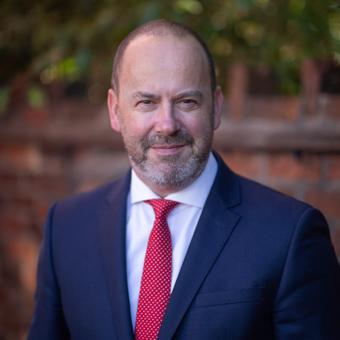John Cleaveley – partner at Weightmans LLP – on making the move from in-house into private practice
What made you initially choose to pursue a career in law?
I did a Law degree at university and it seemed like a natural progression. I was fortunate at the time as when I was looking for articles the competition for places was not what it is now. As a result, I was able to gain a place at Hepworth and Chadwick in Leeds (now Eversheds).
Can you tell us a bit about your own career to date?
On qualification, I was offered a role in the construction team at Eversheds. It was not an area I had experienced whilst training, but I thought it sounded interesting. I moved to Manchester in the mid-90s and joined Masons (now Pinsent Masons). Following that, I worked for Garretts - the legal arm of Arthur Anderson - for a year, and then moved in-house with Mowlem plc, which had been a client of mine whilst I was at Masons. After five years, I joined Bovis Lend Lease and worked on a number of major projects such as MediaCity in Salford. Prior to joining Weightmans. I was the sole legal adviser to the Fulcrum Group - an Aim-listed utilities connections company. I was also a member of its executive leadership team.
What does your current role at Weightmans involve?
I started out as a contentious construction lawyer but following the move in-house my experience has been mainly in non-contentious development work and contract negotiation. Consequently, 50% of my day will be spent doing fee earning work. The rest is split between marketing, administration and business development tasks and supervising the construction teams in our Manchester and Liverpool offices.
You started your career in private practice and then moved in-house in the 2000s. What prompted your decision last year to switch back?
My first move in-house was in 2001, so I had not been in private practice for some time. There were two key reasons for the move back. Firstly, in-house lawyers are an overhead for most businesses and I was unfortunate enough to get made redundant twice during my in-house career. Secondly, I was increasingly involved in the management of the business and, although this was interesting, it did mean I was increasingly doing less and less construction work. I was concerned that I may lose my core legal skills as a consequence. The move back to private practice (and being part of the fee generating element of the firm) means I have more control over my own future and I can focus on the construction related work that I enjoy.
How have you found the transition?
There was the inevitable learning curve to reacquaint myself with specific systems and process, but every company has these so it was not too difficult. I don’t get the same variety of legal work or the opportunity to work closely with a specific business, but I do get the opportunity to work for a variety of clients on a number of different schemes and contract forms. I do miss the day-to-day contact and involvement in a specific business, but I don’t miss being asked to advise on areas of law I have never dealt with before... or being asked to attend meetings to provide detailed advice with half an hour’s notice!
What have been the best/ worst things?
It has been good to focus on construction work and get involved in a number of very interesting schemes. It is also great to be able to call upon the resources and experience of a large law firm to provide specialist advice to clients. Financial targets are a constant challenge, but that is the case in any business.
You specialise in construction. That sector has had a tough few years. What’s driving your work now?
We are seeing a lot more activity among developers in Manchester, Liverpool and across the North West generally. This indicates that funders are looking to invest in commercial property again. Consequently, we are getting a lot of work on new developments. Construction has always been a contentious sector and there remains a steady stream of disputes as well.
Are there different demands on you from clients post-recession?
There is a greater emphasis on adding value, which I think is right. The business relationship between client and lawyer must be a two-way arrangement with the ability to provide legal advice taken as a given. It is being able to develop a good understanding of your clients’ needs and priorities and then work with them to help progress their business that makes the difference.
What do you think is in-store for the construction industry in 2015?
Increased activity in the private sector but perhaps less so in the public sector. Some schemes may be deferred to the second half of the year whilst businesses wait to see the outcome of the general election. I also think that Building Information Modelling (BIM) will continue to attract a lot of headlines.
Finally, any tips/ advice for readers who may be thinking of moving from in-house into private practice?
A number of in-house lawyers asked me why I had chosen to re-join the ‘Dark Side’, but if you find a firm with the right ethos and approach it can be a very positive experience. A number of in-house roles have become focussed on management and compliance and take the lawyers away from the day-to-day legal work that may have attracted them to an in-house role in the first place.
A move back to focussing on your core skills can be refreshing. The fact that you have experience of buying legal services should be appreciated and used by a law firm to improve their standards of service; I am involved in our client improvement and in-house lawyer programmes. Firms tend to want to see that you have been doing legal work rather than just managing a team.
The ability to bring a following will be limited for most in-housers, but if you can show you can bring work from your existing employer, have a lot of good contacts or have good business experience, that will work in your favour.
Web: http://www.weightmans.com
Twitter: https://twitter.com/Weightmans
LinkedIn: https://uk.linkedin.com/company/weightmans












